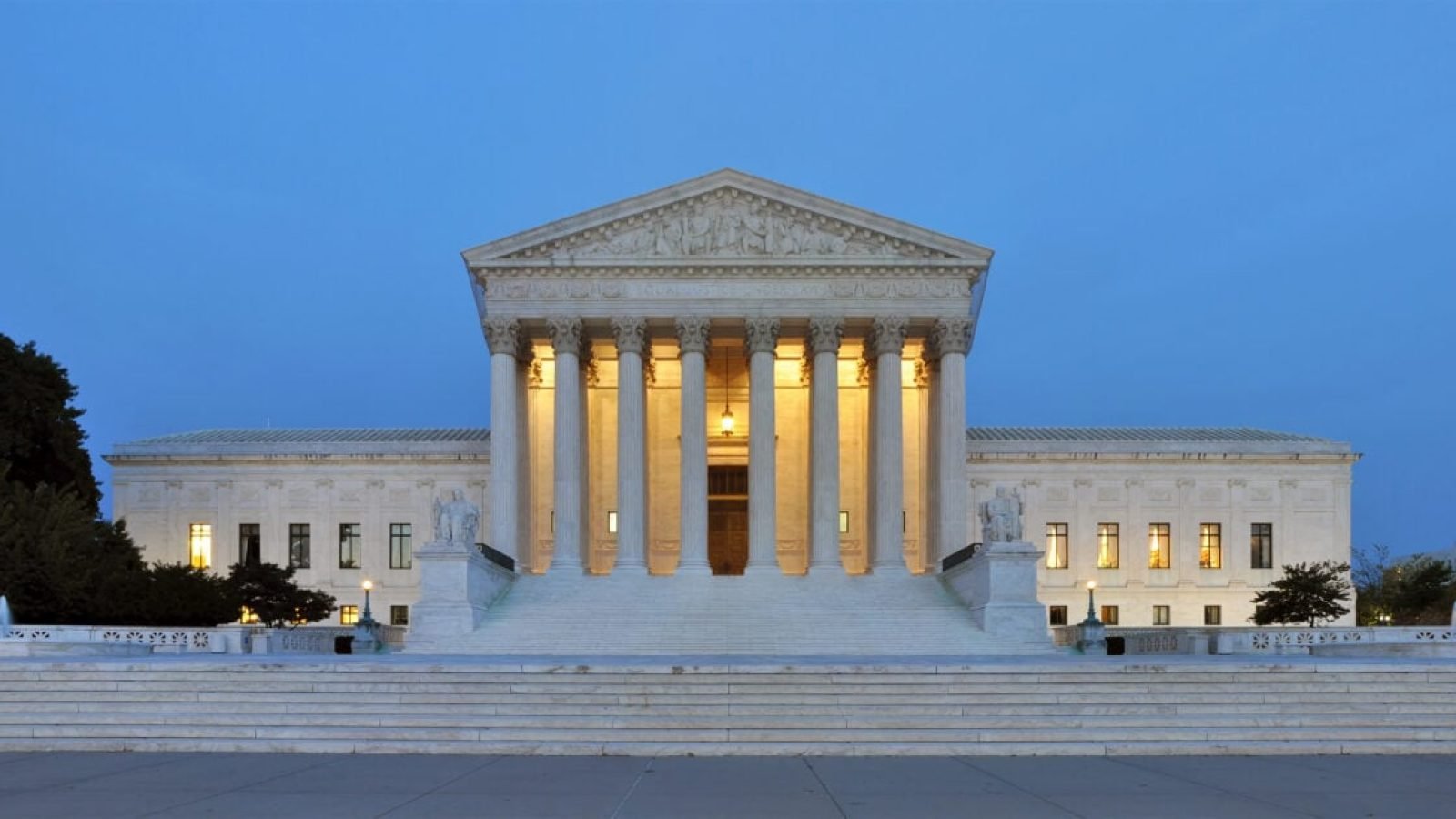The U.S. Supreme Court on Friday upheld a gun ban on individuals under restraining orders to stay away from their spouses or partners.
“The Supreme Court ruled 8-1 for the government in USA v. Rahimi, saying that ‘an individual found by a court to pose a credible threat to the physical safety of another may be temporarily disarmed consistent with the Second Amendment,’” Firearms Policy Coalition wrote.
LEGAL ALERT: The Supreme Court ruled 8-1 for the government in USA v. Rahimi, saying that “an individual found by a court to pose a credible threat to the physical safety of another may be temporarily disarmed consistent with the Second Amendment.” https://t.co/1ngrRdiDVX pic.twitter.com/Kvhvdrfoj4
— Firearms Policy Coalition (@gunpolicy) June 21, 2024
Justice Clarence Thomas was the lone dissenter.
“The justices reversed a ruling from the federal appeals court in New Orleans that had struck down the law,” the Associated Press noted.
WATCH:
BREAKING: Supreme Court rules 8-1 upholding ban on domestic abusers owning guns. pic.twitter.com/8eVxuq66FF
— MSNBC (@MSNBC) June 21, 2024
Fox News reports:
Both liberal and conservative justices agreed with the Biden administration that there was a history and tradition of keeping firearms from dangerous persons, despite the lack of any specific ban that may have been in place when the Constitution was enacted in the 1790s.
The case, U.S. v. Rahimi, is first major test of the Second Amendment since a high court ruling in 2022 expanding rights of law-abiding citizens to carry handguns outside the home for protection, and could have major implications for several gun-rights measures working their way through the legal system and in state legislatures.
The conservative majority in that case known as “Bruen” said gun regulations must be consistent and analogous with “the Nation’s historical tradition of firearm regulation” in order to withstand present-day constitutional scrutiny.
It could also affect current cases that deal with whether current and former drug users can similarly be denied gun ownership — like that of Hunter Biden. The president’s son plans to challenge his conviction this month for lying on a federal registration form in 2018 about his addiction when buying a firearm.
The case before the court stemmed from a lawsuit that involves a Texas man, Zackey Rahimi, who — under a DVRO — argued he still had a right to keep a gun for self-protection. Rahimi was charged with separate state offenses that began with the 2019 physical assault of his ex-girlfriend and later another woman by use of firearms.
Lawyer Robert Barnes called the ruling a “bad decision” that “greenlit red flag laws.”
#SCOTUS just greenlit red flag laws. Bad decision. https://t.co/e31G6dgAQ7
— Robert Barnes (@barnes_law) June 21, 2024
Firearms Policy Coalition provided a “layman’s breakdown” of the decision:
– The Court confirmed that “text informed by history” is the proper analysis, thus re-enforcing Heller and Bruen, meaning if it is an arm, the State must point to historically similar laws to prove the law/action is justified
ADVERTISEMENT– Interest Balancing is confirmed dead, meaning the State can’t say, “It’s in the interest of public safety.”
– The government bears the burden of proof, meaning the State cannot say it is up to us to prove a law is a violation; they must prove it’s not.
– The Court completely rejected the State’s idea that lack of “responsibility” is grounds for disarmament, meaning simply breaking the law is not enough. This bodes well for nonviolent offenders and all peaceable people. Stop saying ‘law-abiding’; it’s wrong and unnecessary.
– Justice Thomas is the only one to correctly point out that the Federal Government does NOT have the broad disarmament powers at issue in this case.
Here is your layman’s breakdown of today’s Rahimi opinion:
– The Court confirmed that “text informed by history” is the proper analysis, thus re-enforcing Heller and Bruen, meaning if it is an arm, the State must point to historically similar laws to prove the law/action is… https://t.co/UCjOgHPreg pic.twitter.com/OAbNl3tR1x
— Firearms Policy Coalition (@gunpolicy) June 22, 2024
From the Associated Press:
Roberts turned to history in his opinion. “Since the founding, our nation’s firearm laws have included provisions preventing individuals who threaten physical harm to others from misusing firearms,” he wrote.
Some courts have gone too far, Roberts wrote, in applying Bruen and other gun rights cases. “These precedents were not meant to suggest a law trapped in amber,” he wrote.
ADVERTISEMENTIn dissent, Thomas wrote, the law “strips an individual of his ability to possess firearms and ammunition without any due process.”
The government “failed to produce any evidence” that the law is consistent with the nation’s historical tradition of firearm regulation, he wrote.
“Not a single historical regulation justifies the statute at issue,” Thomas wrote.
Seven of the nine justices wrote opinions in the guns case spanning 94 pages, mainly focused on the proper use of history in evaluating gun restrictions and other limitations on constitutional rights.
Read the full ruling HERE.
This is a Guest Post from our friends over at 100 Percent Fed Up.




Join the conversation!
Please share your thoughts about this article below. We value your opinions, and would love to see you add to the discussion!